Student activists gathered on Feb. 9 to launch the Dores Workers Solidarity Network, an unregistered organization that unites 20 advocacy and cultural groups on campus with the aim of improving construction practices at Vanderbilt and around Nashville. The inaugural meeting came two weeks before, in a statement to The Hustler, the university acknowledged the death of a worker on the site of the Owen Graduate School of Management in July 2021.
The university previously released a public statement about a February 2022 death that occurred at the site of Rothschild College. In a Feb. 21 statement to The Hustler, the university noted that the deaths at the Rothschild and Owen sites were due to natural causes and not “work-site related.” Prior to this statement, the university had not acknowledged any recent worksite deaths other than the February 2022 fatality at the Rothschild College site.
“The university works closely with our external construction partners to maintain the safety and security of our building sites and subscribes to all required Metro and State codes and ordinances,” the statement reads.
There are currently eight active construction zones on the Vanderbilt campus, with three additional projects in the “planning” stage, according to the university’s website. The expansion of FirstBank Stadium, construction of new tennis facilities and enhancement of the basketball center are a few of the projects being built as part of the $300 million Vandy United campaign, which broke ground on Feb. 8. The university is continuing to build more student housing, including the construction of Residential College C in the West End neighborhood and graduate student housing between Lyle and 20th avenues. The university stated that they could not comment further about whether there have been any deaths or injuries at any of these sites.
DWSN began organizing with Worker’s Dignity in response to the Rothschild College site death as well as a wage dispute among workers and subcontractors, according to sophomore Emma Marlowe. The group is composed of students from registered and unregistered organizations on campus, including Hidden Dores, Generation Action and Dores Divest.
At the initial DWSN meeting, workers being kept anonymous for protection from retribution provided testimonies about wage disputes with contractors and conditions at on-campus construction sites. A construction worker said that they were part of a wage dispute for their cement work as part of the Divinity School expansion that was completed in 2019. The worker said the general contractor used by the university for the project, Orion Building Corporation, hired the Joe Haas Construction company to outsource segments of the project. According to the worker, Joe Haas withheld $70,000 in wages and material costs.
“These contractors hire subcontractors who they are on the same page with: They’re there to exploit workers,” the worker said. “The subcontractors act like ghost companies.”
Vanderbilt acknowledged the dispute in its statement to The Hustler, stating that it worked with the involved parties to resolve the situation despite not being directly involved; the worker has since been paid. The university added that it requires potential contractors to submit Experience Modification Ratings as part of the selection process, a statistic that provides insight into the contractors’ safety record.
“Vanderbilt expects those who do business with and on behalf of the university to conduct themselves professionally and treat business associates and employees fairly,” the statement reads.
First-year graduate student Daniel Wrocherinsky said during the meeting that the DWSN seeks to implement a strategy similar to that used by the Coalition of Immokalee Workers in Florida. From 2001-05, the coalition advocated for people working for commercial tomato suppliers used by popular restaurants, such as Taco Bell. Wrocherinsky said this model shows potential in helping improve construction practices in Nashville and on campus.
“We are surveying over 250 Nashville construction workers on the things they want and need, which will be transformed into a Worker Social Responsibility Agreement we will be pressuring Vanderbilt to uphold,” Wrocherinsky said. “We believe if Vanderbilt falls, then the [rest] of the construction industry will change in the same way that the Immokalee workers targeting Taco Bell ended up changing the entire tomato industry.”
During the meeting, senior Jackson Davis, a member of DWSN, pointed to the business-friendly legislative environment in Tennessee as a main factor contributing to a dangerous workplace for construction workers in the state. Davis also highlighted Tennessee’s preemption laws, which he said prevent municipalities from implementing legislation enhancing worker protection beyond state regulations.
“Essentially, [Tennessee] is the worst state in the country for preemption laws and their relation to labor rights,” Davis said.
Davis also spoke about the power of the construction lobby in Nashville and around the state, which he claims exercises too much power over the legislative process.
“The state legislature and Nashville and Davidson counties’ municipal governments are pretty much in lockstep with the developers’ lobby,” Davis said. “It’s really difficult to make change through the legislative process because of how hard-right the state is and how much regulators work with developers.”
In a statement to The Hustler, Grace Rogers — CEO of the Associated General Contractors of Tennessee, a statewide trade organization representing the commercial construction industry in the state — said the AGC did not advocate for the passage of preemption laws but noted the importance of clear and enforceable safety standards.
“With rules that would change with county lines, that could cause confusion and possible noncompliance. AGC of Tennessee is in support of safe work environments for employees both on the job site and off,” Rogers said. “We are constantly monitoring legislation relating to safety and will always advocate in favor of the safety and well-being of our members and their employees.”
Rogers added that AGC is the only construction-related association that has “Safety Directors” tasked with educating its members on how to prevent worksite injuries. On May 18-19, AGC of Tennessee will be hosting a Safety Summit at the Vanderbilt School of Engineering.
Alejandro Moncayo (‘22) said the COVID-19 pandemic and changes in university leadership have altered how students organize. He stated that he hopes the DWSN revitalizes activism on campus.
“COVID-19 occurred, and I think the university really dug deep into that and took advantage of the ways in which it could separate community, break the ability to build community and rupture that togetherness that we felt before the pandemic,” Moncayo said.
The university declined to give comment on Moncayo’s statements. Moncayo added that he is prepared for any administrative resistance the movement may face as it attempts to hold Vanderbilt accountable for alleged labor violations.
“We do not want to be surveilled by the administration. We do not want to be under their iron fist. We want no part of it,” Moncayo said. “I’m not saying we are going to be hostile [toward the administration], but we’re going to have our demands, and we are not going to be quiet until they’re met.”

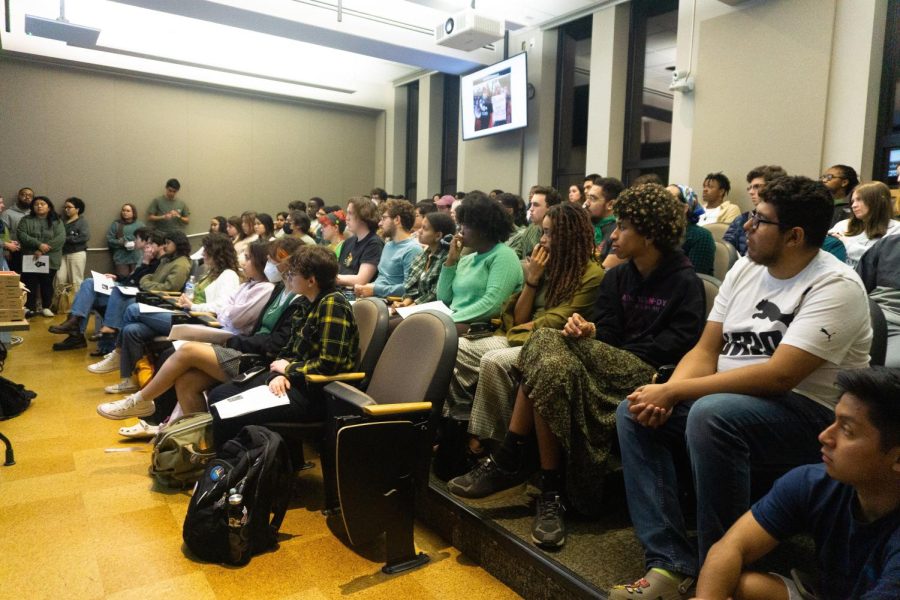


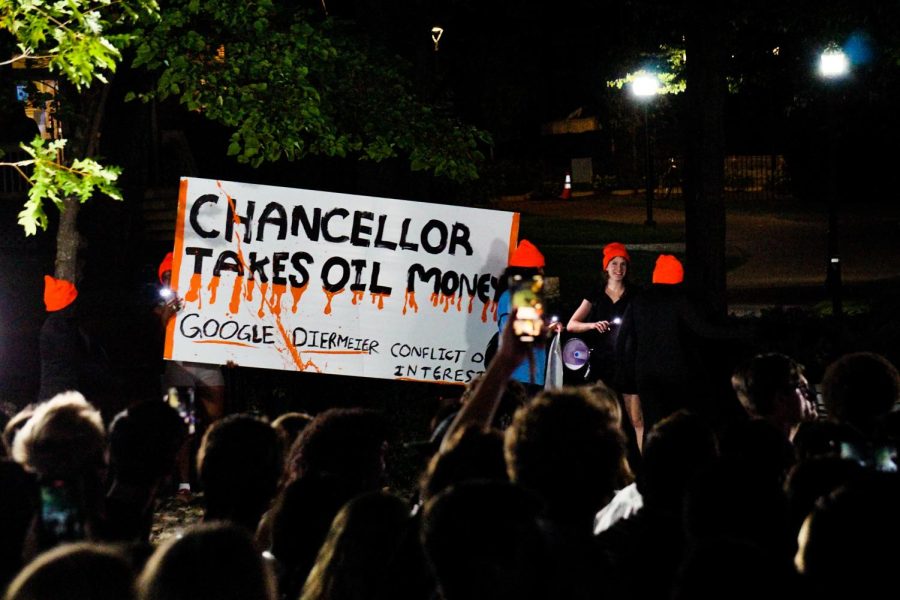
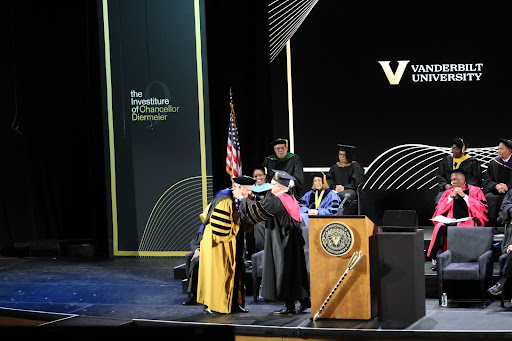
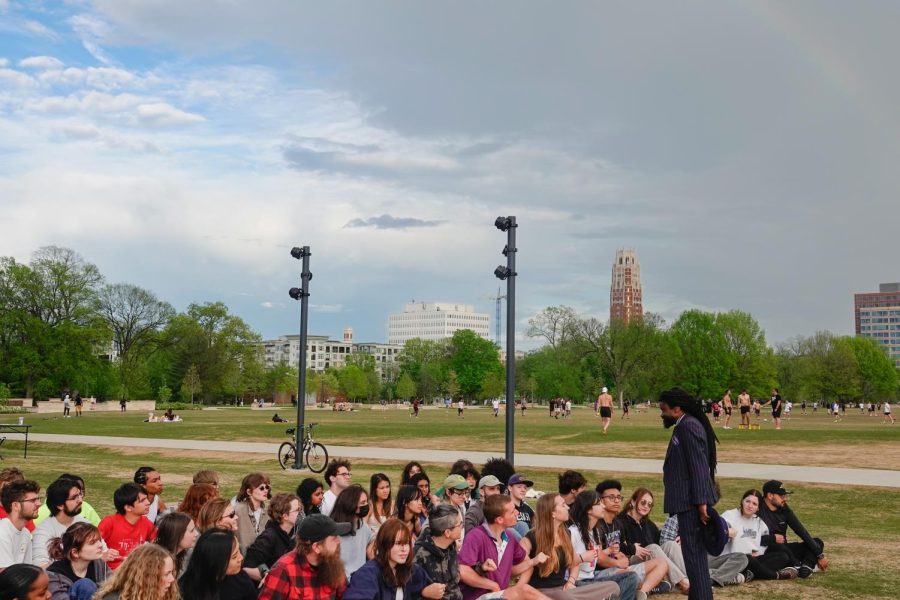

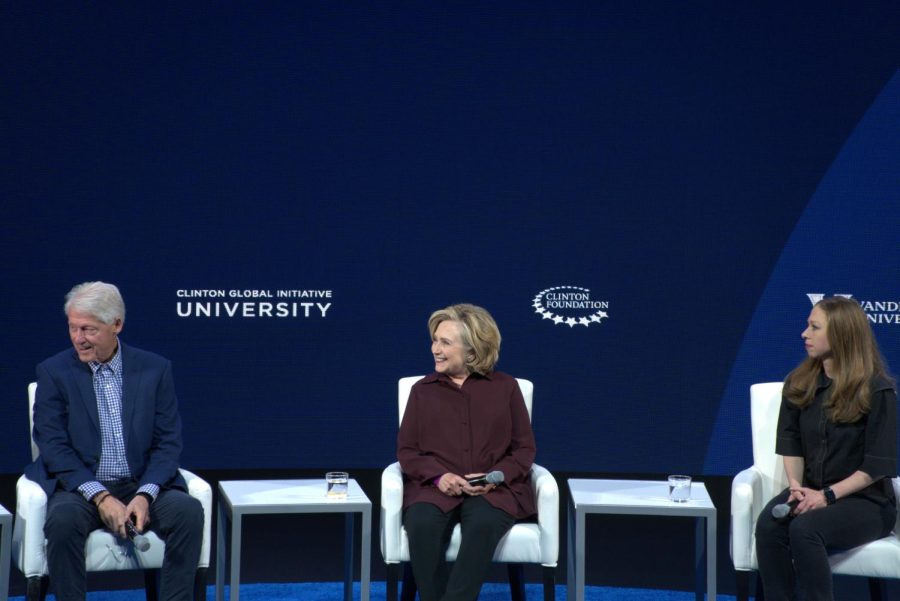
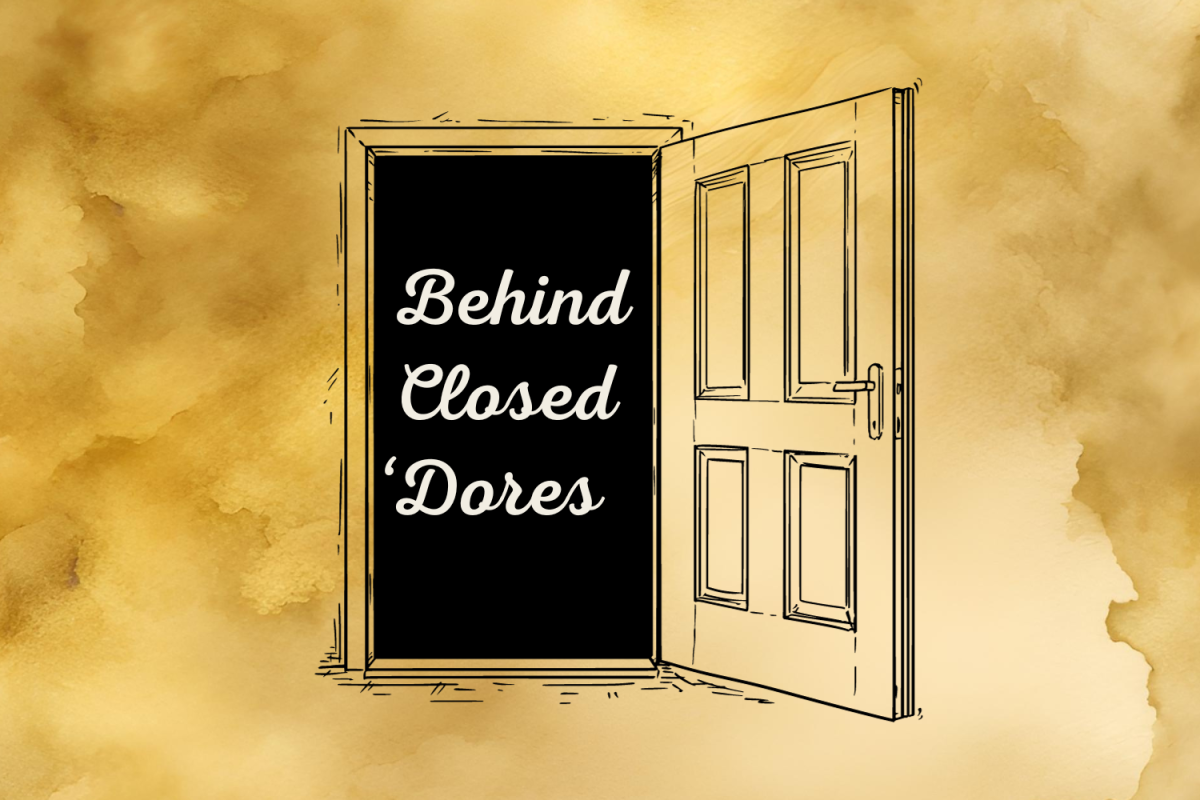

Sophia Bokaie • Feb 24, 2023 at 2:37 pm CST
Wow! Great article revealing Vanderbilt negligence.
Abolish Worker Slavery at Vanderbilt • Feb 23, 2023 at 6:38 pm CST
What this article did not mention is that both workers that died worked for the same temp agency and were both unhoused- with one living on site in exposed conditions where he died. After the first death Vanderbilt decided to continue working with the staffing agency! Vanderbilt Medical currently continues to work with the same agency! Vanderbilt also says natural causes but one death was ruled a heart attack by VUPD and he was in his 20s?? Show us the autopsy. Nashville is the most unsafe place to work in the south and the pay and benefits are not enough to live on. The temp agency Vanderbilt uses picks people up outside unhoused encampments, the jail, and shelters at four AM to work jobs that make 10-14 dollars an hour- and don’t pay them till 8 am which is illegal! Then they bring them to the most deregulated and unsafe construction sites in the country with no healthcare protection or workers compensation for injury or death. The living wage in Nashville is 18 dollars- which is just enough to afford basic necessities. Sources close to Vanderbilt Trauma ER say that most people coming in are construction workplace injuries which do not line up with OSHA filings at all. I go out and canvas these folks often and no one has any ability to afford housing, get on their feet, let alone have any time for friends, family or themselves. This is below subsistence pay, this is wage slavery!
David • Feb 23, 2023 at 6:35 pm CST
Powerful student organizing and powerful student journalism